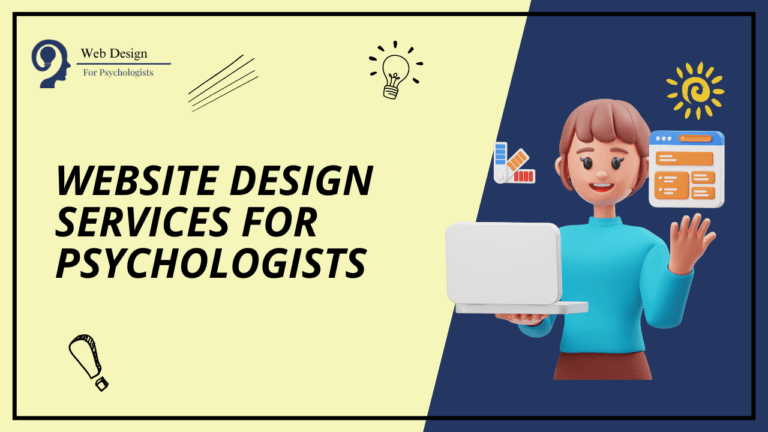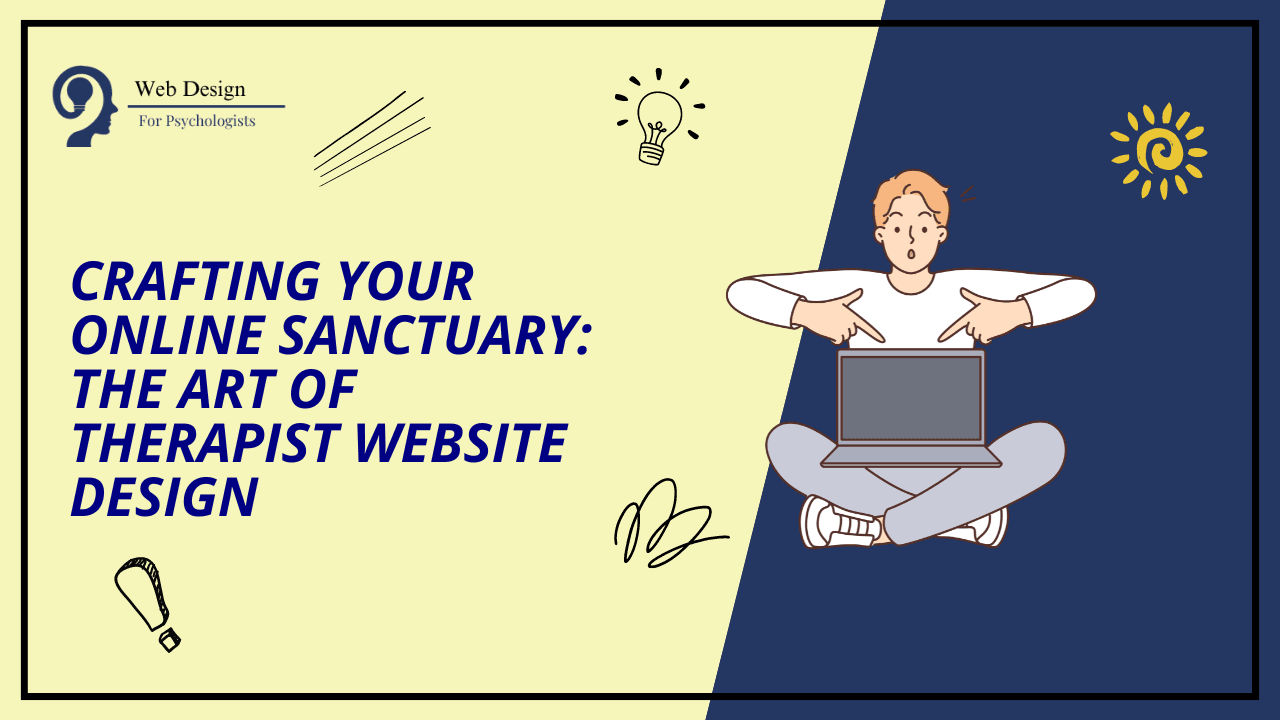In the digital age, where the first point of contact with potential clients often occurs online, the significance of an effective and aesthetically pleasing website cannot be overstated. Psychologists, in particular, can benefit immensely from specialized website design services that cater to their unique needs. This article explores the importance of tailored website design services for psychologists, the misconceptions around cheap web design, and the key considerations when creating websites for mental health professionals.
Website Design Services for Psychologists: A Necessity, Not a Luxury
A psychologist’s website serves as a virtual office, a space where potential clients can gain insights into the practice, approach, and expertise of the therapist. Tailored website design services for psychologists go beyond creating a visually appealing site; they encompass elements that resonate with the ethos of mental health practices:

- Clear Communication of Services:
A well-designed psychologist’s website should effectively communicate the range of services offered. Whether it’s individual counseling, family therapy, or specialized treatments, the website should serve as a comprehensive guide for potential clients. - User-Friendly Navigation:
Navigating through the website should be intuitive. Visitors should easily find information about the therapist’s background, areas of expertise, contact details, and appointment scheduling. User-friendly navigation is crucial for ensuring a positive user experience. - Credibility and Trust Building:
A professional website instills trust in potential clients. Psychologists should highlight their qualifications, experience, and any certifications prominently on the site. Testimonials and success stories, with consent, can further establish credibility. - Responsive Design:
With the prevalence of mobile devices, having a responsive website is non-negotiable. Responsive design ensures that the site adapts seamlessly to different screen sizes, providing a consistent and optimal viewing experience for visitors. - Integration of Interactive Features:
Features such as online appointment scheduling, contact forms, and possibly live chat options enhance user engagement. These interactive elements contribute to the accessibility and convenience of the therapist’s services.
Debunking the Myth of Cheap Web Design for Psychologists
While cost-effective solutions are attractive, the term “cheap web design” often carries negative connotations. Psychologists should be cautious about opting for seemingly budget-friendly options that may compromise the quality and effectiveness of their online presence:

- Quality Matters:
Cheap web design may sacrifice quality, resulting in a website that appears unprofessional or outdated. A poorly designed site can deter potential clients and negatively impact the psychologist’s reputation. - Limited Customization:
Generic templates used in cheap web design may limit customization options. Psychologists benefit from unique designs that reflect their individual brand, values, and approach to therapy. - Lack of SEO Considerations:
Cheap web design services may overlook crucial Search Engine Optimization (SEO) considerations. An effective psychologist’s website should be optimized for search engines to enhance visibility and attract a broader audience. - Inadequate Support and Updates:
Budget-friendly options may lack ongoing support and regular updates. In the dynamic online landscape, it’s essential for psychologist websites to stay current, secure, and aligned with evolving industry standards.
Key Considerations in Website Design for Psychologists
When seeking website design services for psychologists, several key considerations can ensure the creation of a tailored and effective online platform:
- Collaboration with Design Professionals:
Partnering with experienced web designers who understand the unique needs of psychologists ensures a collaborative approach to creating a website that aligns with the therapist’s vision and goals. - Customization for Branding:
A psychologist’s website should be an extension of their brand. Customization allows for the incorporation of logos, specific color palettes, and fonts that resonate with the professional’s identity. - Focus on Security and Privacy:
Given the sensitive nature of psychological services, website design should prioritize security measures to protect client information. This includes implementing Secure Sockets Layer (SSL) certificates for encrypted data transmission. - Scalability for Growth:
A well-designed website should be scalable, accommodating future growth in services or additional features. Whether a psychologist expands their practice or introduces new offerings, the website should adapt accordingly. - Intuitive Content Management System (CMS):
Psychologists benefit from having control over their website’s content. An intuitive CMS allows for easy updates, content additions, and modifications without the need for extensive technical expertise.
Conclusion: Elevating the Online Presence of Psychologists
In the realm of psychology, where trust, credibility, and accessibility are paramount, investing in specialized website design services is a strategic decision. Psychologists should view their website not merely as an online brochure but as a dynamic tool for connecting with individuals in need of mental health support.
The design and functionality of a psychologist’s website play a pivotal role in establishing a positive first impression and building lasting connections with clients. By prioritizing quality over cost, collaborating with experienced professionals, and considering the unique needs of their practice, psychologists can ensure that their online presence reflects the professionalism and care integral to their therapeutic services.




